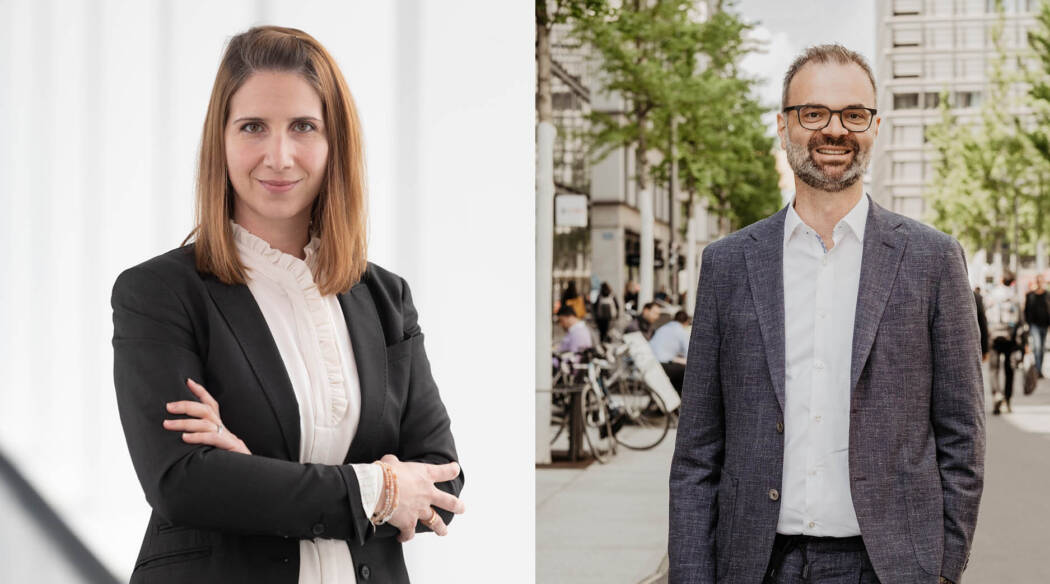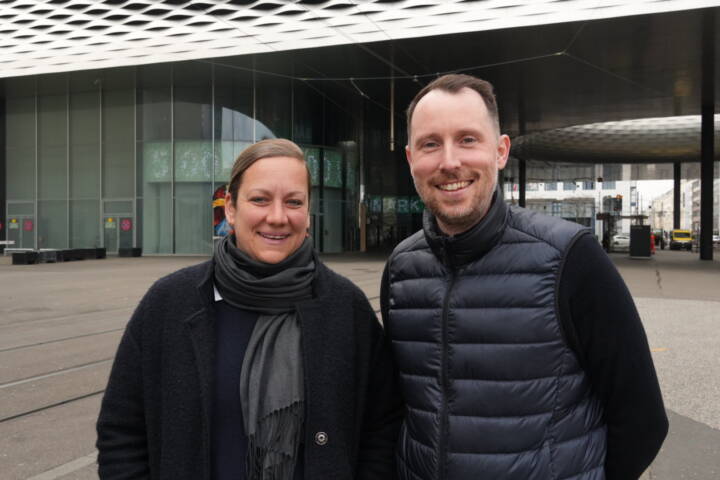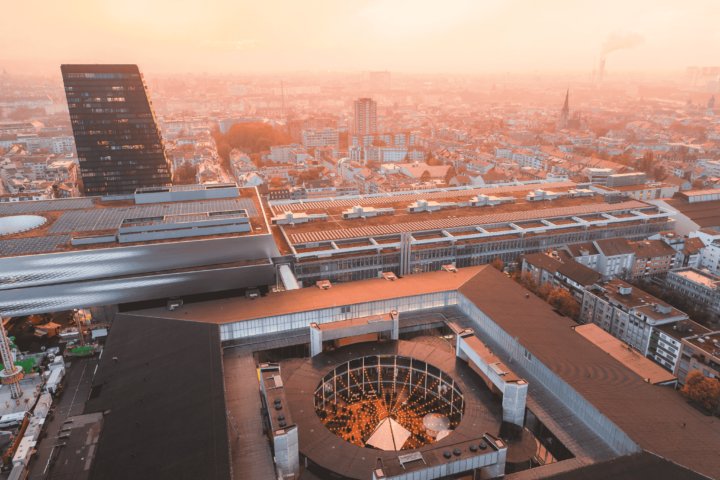The two largest cities in German-speaking Switzerland share numerous common traits. Not only are business tourism and congresses key economic factors for the two cities, both have recently appointed new directors of tourism too. We spoke with Basel-born Letizia Elia and her Zurich counterpart, Thomas Wüthrich, about current developments and the challenges of the future.

Letizia Elia and Thomas Wüthrich, what is your impression, how is tourism faring in your respective cities at present?
Letizia Elia: We have been positively surprised by the current developments. The situation has eased considerably and the majority of guests have come back to Basel. It is clear, however, that we have still not yet reached the record level of 2019 again.
Thomas Wüthrich: The situation in Zurich is gratifyingly similar. Not only the city but the entire region is currently benefiting from the pent-up demand for travel. This holds true of both leisure and business tourism which, in our region, account for roughly equal shares. I do have certain reservations, however, since it is not yet clear what effect inflation and the strong franc will have over the long term.
Have you experienced any difference in the pattern of enquiries received for business tourism and congresses since the outbreak of the corona pandemic?
Letizia Elia: We were confronted with a total standstill in the congress business for a prolonged period of time. Now, however, we are experiencing precisely the opposite, with an enormous pent-up demand resulting in very high numbers of conference events. The situation is somewhat different for business travel. There, people are still avoiding shorter trips – and that is likely to remain the case in the future too. We are, however, expecting to see more longer trips instead, and that will push up the figure for overnight stays again.
Thomas Wüthrich: We are likewise working on the assumption that there will not be as many trips to Zurich by individually travelling business tourists as before the pandemic. We do, however, feel that organised business trips and large-scale meetings and conferences will become more important, since people are not only able to acquire information there but can also engage in personal discussions and networking.
In the acute phase of the corona pandemic, business tourism and the congress industry suffered a disproportionately high number of cancellations and revenue losses. Do you think it will be possible to return to the 2019 level at all and, if so, when?
Thomas Wüthrich: That is difficult to predict. As I’ve already said, people will probably undertake fewer business trips but these will tend to be longer and take in more. It is thus quite feasible that business and leisure tourism will become even more closely entwined in future. More specifically, this could perhaps lead to business travellers extending their stay by one or two days to explore our city as “normal” tourists.
Letizia Elia: It’s the same for me as for Thomas – unfortunately I don’t have a crystal ball to hand either to tell me what is going to happen (laughs). I’ll thus answer the question with reservations: I don’t see this happening in 2022 and 2023 already but perhaps in 2024? It’s all up in the air, however, since a lot of water will be flowing along the Rhine before then.
What are you as a tourism organisation doing to achieve this goal?
Thomas Wüthrich: At the moment, we’re busy updating our strategy. One major aspect will certainly involve placing greater focus on business tourism than has been the case to date. Zurich is and will remain a key location for large-scale trade fairs and congresses and we want to devote even more attention to this in future – in terms of both our marketing activities and our human resources.
Letizia Elia: We recently took the decision to expand our MICE team, given that personal contacts and a good network are extremely important in this field of business.
How does the destination need to develop in order to remain attractive for business tourism and the congress business?
Letizia Elia: We still have scope for improvement when it comes to sustainability – and, moreover, the same holds true for many of our competitors too. The MICE sector in particular is experiencing a high demand for environmentally-friendly offers. While Basel is already quite well-positioned here, it has not been communicating this to a sufficient extent so far.
Thomas Wüthrich: We have to make sure that our offerings remain versatile and of a high quality. And we too want to keep in line with the trend toward greater sustainability and fulfil our customers’ expectations – most importantly in ecological terms but also from a social and economic point of view. While we already have facilities for larger-scale congresses with ACE Zurich, we also need to expand our event infrastructure still further to ensure that we remain competitive with Basel, Geneva and other cities in Europe for XL events too.
If you had to describe your city to someone who had never been there what would you say?
Thomas Wüthrich: Zurich gives you a feeling of being on holiday – it’s as simple as that. Or to express it differently, in Zurich you will find everything your heart desires all within easy reach – outstanding culture, a tremendous variety of gastronomic offerings and top-quality accommodation. And you can be in the very heart of nature in just few minutes.
Letizia Elia: The words that spring to mind are a city of contrasts. This is already evident from the type of buildings, since Basel has a delightful old town rich in history while at the same time featuring an impressive potpourri of modern architecture. Our city is also very innovative – I’m thinking here of our achievements in terms of science and research, as well as in the field of art. Yet, despite this, it is very much aware of its traditions. This is clear from its “Fasnacht”, or carnival, for example. And, over and above this, Basel is located at the point where three countries meet, making it both Swiss and international at one and the same time.



